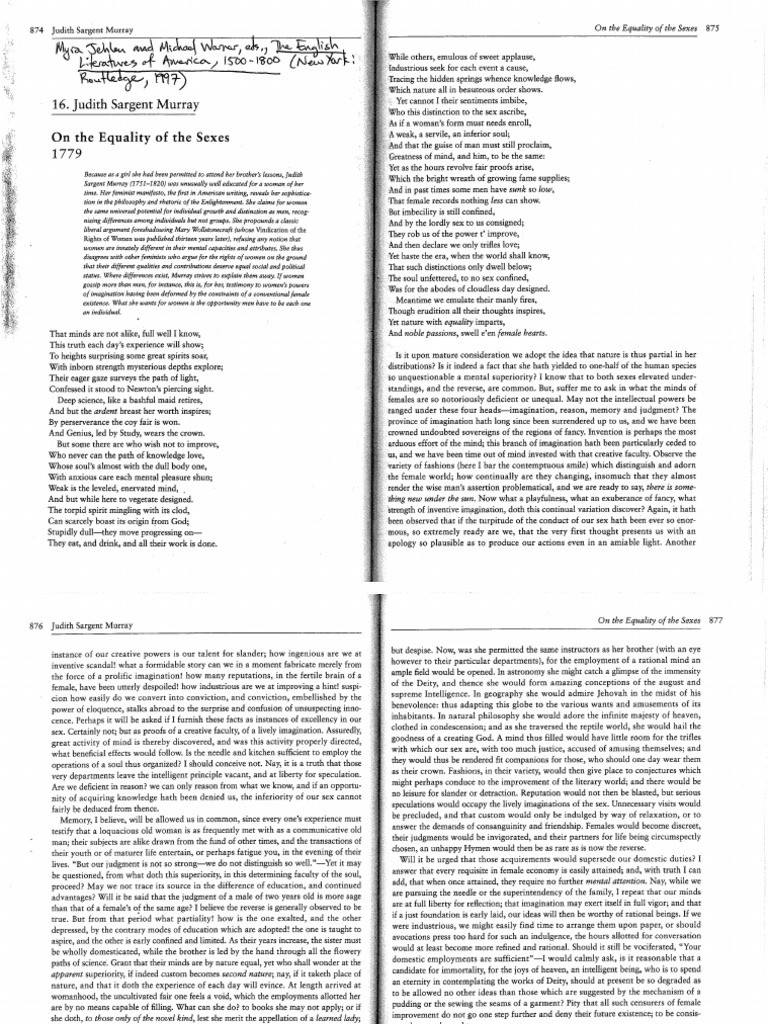The Bahá’í teachings on the equality of the sexes present a profound and transformative framework for understanding gender relations within the context of spiritual and societal evolution. This principle, which asserts that men and women are equal in all aspects of life, serves as a foundational tenet of the Bahá’í Faith and is pivotal for the advancement of civilization. How can embracing this principle enhance both individual lives and society at large? Perhaps an unexpected challenge arises: in what ways can societal norms and preconceptions impede the realization of this essential unity?
To navigate the complex terrain of gender equality, it is essential first to establish a clear understanding of Bahá’í teachings. One of the central ideas articulated by Bahá’u’lláh, the founder of the Bahá’í Faith, is that gender-based discrimination is not just a social injustice but a spiritual failing. The Bahá’í writings declare that “the earth is but one country, and mankind its citizens.” This calls for a collective consciousness that transcends arbitrary distinctions, fostering relationships predicated on mutual respect and dignity.
Moreover, this gender equality is not merely a theoretical construct. It demands practical applications that can produce meaningful change in everyday life. At the core of the Bahá’í perspective is the idea that the talents and capabilities of individuals, regardless of gender, should be cultivated and celebrated. Therefore, it is imperative that both genders have equal access to education, opportunities for personal development, and participation in governance.
The role of men and women in progressing towards this ideal requires a paradigm shift. For instance, men are called to become allies in the promotion of gender equality. The traditional masculine identity, often steeped in notions of superiority, must evolve to encompass compassion, nurturance, and equity. This approach not only benefits women but enhances the emotional intelligence of men, leading to healthier familial and societal dynamics.
Simultaneously, women are urged to embrace their empowerment and assert their rights as equals. This assertion is not merely a reaction to oppressive structures; rather, it is a proactive affirmation of one’s inherent worth and capabilities. In a spirit of collaboration, women and men, working in tandem, can dismantle archaic systems of inequality and pave the way for a more just and balanced world.
Yet, the reality remains that challenges persist. One need only look to the entrenched societal norms and cultural customs that perpetuate gender-based inequities. In various parts of the world, traditions rooted in patriarchy continue to govern behaviors and expectations. These customs can be subtle or overt, but they create barriers to equality that require deliberate action to dismantle. Herein lies the playful question: are we willing to challenge the conventions that dictate gender roles, or will we remain passive participants in a cycle of inequality?
Furthermore, the implementation of Bahá’í principles in practice necessitates a consciousness that acknowledges the interdependence of genders. It is essential to recognize that when one gender suffers oppression, it affects societal health as a whole. Studies consistently demonstrate that gender equality correlates with improved economic prosperity and stability, lower rates of violence, and enhanced health outcomes for all. Therefore, promoting equality is not merely an ethical imperative; it is imperative for the collective advancement of humanity.
Importantly, the teachings of the Bahá’í Faith emphasize the spiritual dimensions of equality. The concept of “unity in diversity” encourages individuals to observe their inherent differences as a source of strength rather than division. Herein lies another challenge: how can spiritual communities foster environments that celebrate diversity while advocating for equality? Constructive dialogue and mutual support can create a platform where differing perspectives contribute to a mosaic of understanding and empathy.
An integral aspect of this discussion involves the educational system. Education stands as a pivotal avenue not only for individual empowerment but also for the dismantling of gender biases. The Bahá’í teachings advocate for universal education, positing that it is essential for both genders to receive equal educational opportunities. This empowerment through knowledge enables individuals to recognize their potential and challenges societal stereotypes.
In this context, the help of community structures becomes vital. Local Bahá’í communities around the world are engaged in various initiatives aimed at fostering gender equality. These initiatives range from empowerment workshops for women to programs that cultivate healthy masculinity among men. The involvement of both genders in these efforts serves to reinforce the notion that gender equality is not a solitary endeavor but a collective responsibility.
In conclusion, the Bahá’í teachings on the equality of the sexes call for a significant shift in societal paradigms and personal attitudes toward gender relationships. The potential benefits of this equality extend beyond the individual to the collective welfare of humanity. As humanity grapples with the challenges posed by deeply entrenched gender norms, the concepts of equality and unity emerge not just as lofty ideals but as essential practices for creating a vibrant, just, and harmonious society. Thus, the spirited question remains: how can we effectively embody these teachings to inspire tangible change in our communities and world? The pursuit of equality is not merely a noble objective; it is an urgent imperative that requires unwavering commitment and courageous action from all of humanity.
